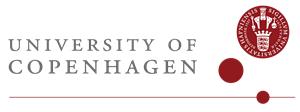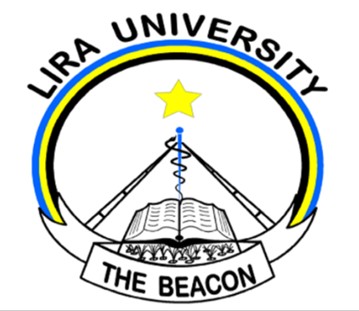Academisch Medisch Centrum Bij De Universiteit Van Amsterdam
Amsterdam University Medical Center (AMC)

Amsterdam UMC is a leading medical center that combines complex high-quality patient care, innovative scientific research, and education of the next generation health care professionals. We believe that health care practice, research and education belong together, with each shaping and informing the other: About Amsterdam UMC and Research at Amsterdam UMC: leading health and life sciences research
The Amsterdam Public Health research institute stimulates state-of-the-art research that contributes to the ever-growing health potential of individuals and communities across the life course. The institute concentrates its research efforts in nine research programs in which 1,700+ researchers from multidisciplinary disciplines are brought together. Amsterdam Public Health is a research institute that connects researchers from multiple disciplines to contribute to the health and care for all people, respecting social, ethnic and cultural diversity and across the life course: Amsterdam Public Health (amsterdamumc.org) and other: Research institutes (amsterdamumc.org)
Vrije Universiteit Amsterdam

VU Amsterdam is a unique university with faculties in the humanities, STEM, social sciences and medical sciences. Our education and research are closely linked. We combine our top position in research with a strong social orientation, which has resulted in an excellent international reputation. Our education and research are distinctly multidisciplinary. This is reinforced by the fact that our faculties are all located on one campus. We are a true campus university in the heart of the Zuidas Knowledge District, sharing its excellent national and international position and accessibility.
University of Ghana

The University of Ghana was established in 1948, the University of Ghana is Ghana’s premier university and a leading center of excellence for training, research and innovation in multiple fields. It was established for the purpose of providing and promoting university education, learning and research. As a University poised to distinguish itself in the area of research to make an impact at the national and international level, the University launched a new Strategic Plan (2014-2024) to consolidate the gains made toward becoming one of the top research-intensive university in the world. The University’s Vision is to become a world-class research-intensive University over the next decade. Its Mission is to create an enabling environment that makes University of Ghana increasingly relevant to national and global development through cutting-edge research as well as high quality teaching and learning.
University of Copenhagen

The University of Copenhagen is a prestigious research-intensive university with faculties in health sciences, humanities, law, science, social sciences, and theology. Our education and research activities are closely interconnected, fostering innovation and critical thinking across disciplines. We combine our strong tradition of academic excellence with an international outlook and a deep commitment to societal impact, resulting in a leading reputation both in Europe and globally. Our education and research are highly interdisciplinary, strengthened by our diverse and vibrant academic environment spread across four main campuses in Copenhagen. We are firmly embedded in the heart of Denmark’s capital, offering a dynamic and globally connected setting that promotes collaboration, innovation, and accessibility.
London School of Economics and Political Science (LSE)

The London School of Economics and Political Science (LSE) studies the social sciences in their broadest sense, with an academic profile spanning a wide range of disciplines, from economics, politics and law, to sociology, information systems and accounting and finance.
Founded in 1895 by Beatrice and Sidney Webb, the School has an outstanding reputation for academic excellence and is one of the most international universities in the world. Its study of social, economic and political problems focuses on the different perspectives and experiences of most countries. From its foundation LSE has aimed to be a laboratory of the social sciences, a place where ideas are developed, analysed, evaluated and disseminated around the globe. To date, 16 Nobel prize winners have been LSE staff or alumni and 34 past or present world leaders have studied or taught at LSE.
Lira University

Lira University is a public higher education institution located in Lira District, Northern Uganda. Established in 2009 as a constituent college of Gulu University, it attained full university status in 2015 through an Act of Parliament.
The university's vision is to be "a Beacon Centre of Applied Science and Technology," and its mission is to provide access to quality higher education, research, and professional training aimed at delivering appropriate health services directed towards sustainable health, community, and environment. Lira University is notably recognized for housing Uganda's first university teaching hospital, emphasizing its focus on health sciences education and research. The university comprises several faculties, including Medicine, Education, Information and Computer Sciences, Public Health, Nursing and Midwifery, and Management Sciences.
Situated on a 621-acre campus in Ayere village, Barapwo parish, Lira sub-county, the university is committed to promoting research, innovation, and community engagement to foster regional development in Uganda
African Population and Health Research Center

The African Population and Health Research Center (APHRC) is a leading research institution based in Nairobi, Kenya, with a West Africa Regional Office in Dakar, Senegal. Renowned for its rigorous research and influence, APHRC focuses on population health and wellbeing in sub-Saharan Africa. Recognized with the 2015 UN Population Award, it consistently ranks as the top African think tank on domestic health policy. Aligned with Agenda 2063, APHRC addresses priority areas such as human capital development, urbanization, and health. Through these four themes, including Chronic Diseases Management, APHRC conducts observational and intervention research to inform policies and practices. Their work involves mobile technology interventions and policy engagement to tackle non-communicable diseases (NCDs) in Kenya, Uganda, and Tanzania, with senior staffs who actively participate in NCD technical working groups, positioning APHRC at the forefront of influencing NCD prevention and care strategies.
